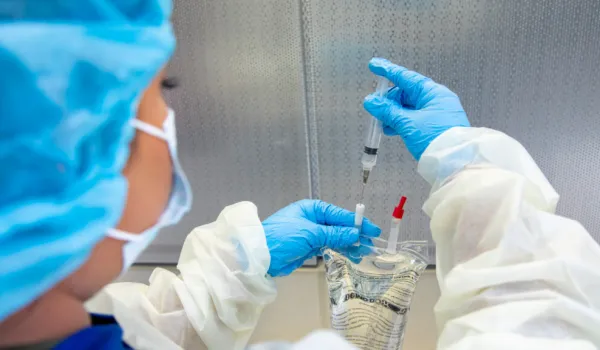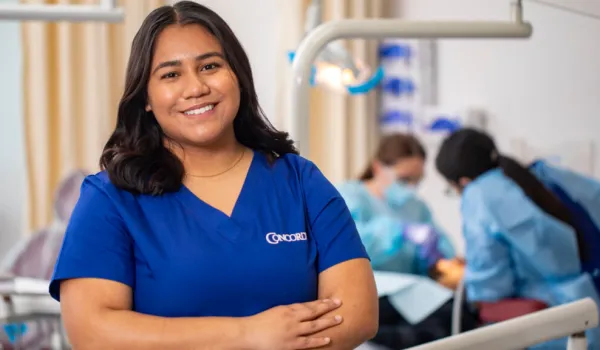
Cardiovascular sonography and diagnostic medical sonography use ultrasound technology to scan the body's internal organs. Cardiovascular sonographers specialize in the heart and blood vessels, and diagnostic medical sonographers work with a broader range of organs and tissues.
Medical sonography is growing fast. Cardiovascular and diagnostic roles have different focus areas, job responsibilities, and career opportunities. Understanding these differences can help candidates decide which path fits their interests and professional goals.
Overview of Cardiovascular Sonography
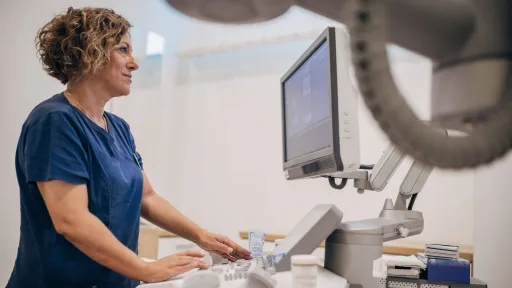
Cardiovascular sonography focuses on imaging the heart and blood vessels. Cardiovascular sonographers examine heart function, check for abnormalities, and evaluate blood flow. They generate 2D and 3D images of the heart's chambers, valves, and blood vessels. They work closely with cardiologists and other health care professionals to diagnose heart disease, valve disorders, and blood clots.
Their key responsibilities include:
- Conducting echocardiograms to assess blood flow through the heart
- Capturing images of heart chambers, valves, and major blood vessels
- Assisting physicians in diagnosing cardiovascular conditions
- Analyzing ultrasound results and preparing summary reports
- Providing imaging results to diagnostic experts
Cardiovascular sonographers help detect conditions such as congenital heart defects, valve disorders, and arterial blockages.
Overview of Diagnostic Medical Sonography
Diagnostic medical sonography covers a wider range of ultrasound imaging. These professionals examine various organs and tissues, including the abdomen, musculoskeletal system, thyroid, and obstetrics/gynecology. They use high-frequency sound waves to create images that can diagnose a range of medical conditions without invasive procedures.
Their key responsibilities include:
- Conducting ultrasound scans of the abdomen, musculoskeletal system, and reproductive organs
- Identifying abnormal growths, organ abnormalities, and plaque buildup
- Working with physicians, nurses, and other health care specialists
- Performing initial imaging tests and interpreting preliminary results
They assist physicians in diagnosing conditions related to various body systems. Diagnostic medical sonographers often specialize in fields such as obstetric/gynecologic, breast, vascular, and musculoskeletal sonography. Their work helps detect tumors, kidney stones, cysts, and fetal abnormalities.
Read more: How To Become a Diagnostic Medical Sonographer: Education and Certification
Educational Requirements and Certification
Both careers require specialized education and training by completing an accredited sonography program. This can take from 12 to 18 months for certificate programs, up to 20 months for an associate degree, or four years for a bachelor's degree. The specific coursework and clinical experiences differ based on the chosen specialty.
Read more: Guide to a Career in Sonography: Here's What To Know
Coursework
Participants in cardiovascular sonography programs study echocardiography, vascular technology, hemodynamics, and cardiovascular anatomy. The training aims to provide an understanding of heart function, blood circulation, and pathology. Diagnostic medical sonography programs cover general ultrasound physics, anatomy, obstetrics, abdominal imaging, and small parts sonography. Students gain experience in scanning multiple organ systems, including the liver, kidneys, uterus, and pancreas.
Certification Options
To pursue a career as a registered diagnostic cardiac sonographer specializing in adult echocardiography, candidates must pass the Sonography Principles and Instrumentation and the AE examinations offered by the American Registry for Diagnostic Medical Sonography within five years. Pursuing a career in diagnostic medical sonography involves obtaining the Registered Diagnostic Medical Sonographer credential, also offered by the ARDMS.
Hands-on clinical experience is a key component of training in both fields. It ensures the candidate can use ultrasound equipment and imaging techniques effectively. Concorde Career College offers its Cardiovascular Sonography program and Diagnostic Medical Sonography program, both of which students can complete in as little as 20 months.
Scope of Practice
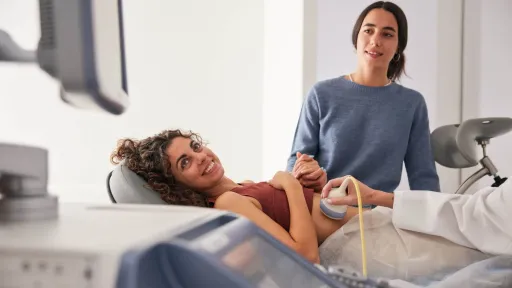
The scope of practice in sonography varies. Here's how to distinguish between cardiovascular and diagnostic sonography:
Cardiovascular Sonography
A cardiovascular sonographer:
- Specializes in heart and vascular imaging
- Performs echocardiograms to assess heart function
- Works with adult patients who have cardiovascular conditions
Diagnostic Medical Sonography
A diagnostic sonographer:
- Covers multiple body systems, including abdominal, obstetric, and musculoskeletal imaging
- Uses ultrasound to detect tumors, cysts, and organ abnormalities
- Works with patients of all ages and genders
Career Opportunities and Work Environment
Both professionals work in hospitals, clinics, imaging centers, and private practices. Cardiovascular sonographers typically work in cardiology departments, while diagnostic medical sonographers find employment in radiology departments. As cardiovascular emergencies can happen at any time, these professionals are likely to have on-call responsibilities, including nights, weekends, and holidays. In hospital settings, they may work rotating shifts or deal with urgent cases, such as evaluating patients with suspected heart attacks or vascular blockages.
A diagnostic medical sonographer's schedule can vary depending on where they work, such as hospitals, outpatient imaging centers, or doctor's offices. While some may have on-call duties in hospitals, they generally have more predictable schedules. Those working in obstetrics and general ultrasound may have occasional after-hours calls but are less likely to be on-call as often as cardiovascular sonographers.
Both roles are highly collaborative as they require working with other health care professionals. A cardiovascular sonographer can specialize in pediatric echocardiography or vascular sonography. A diagnostic medical sonographer can specialize in obstetric/gynecologic, breast, or abdominal sonography. Both careers are in high demand because of an aging population and advancements in medical technology. According to the U.S. Bureau of Labor Statistics, employment for sonographers is projected to see a 13% job growth rate from 2024 to 2034, faster than the average for all occupations.
Read more: Is Health Care Career Training Right For You?
Skills and Qualities Needed for Success
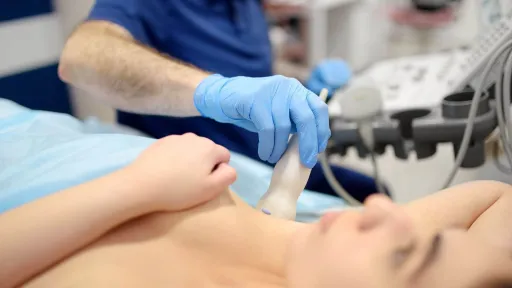
Some common skills for both roles include:
- Effective use of ultrasound equipment
- Good knowledge of human anatomy and physiology
- Attention to detail to get the right images and diagnose ailments
- Effective communication skills for patient interaction and collaboration
- Physical stamina to perform scans throughout the day
- Emotional resilience to manage sensitive medical situations
- Adaptability to new imaging technologies and techniques
- Flexibility to changing schedules, unexpected patient cases, and evolving technology
- Enthusiasm and a passion for patient care
- Confidence to make quick and accurate assessments
Cardiovascular sonographers require specialized knowledge of the cardiovascular system, while diagnostic medical sonographers need broader expertise across multiple organ systems.
Choosing Between Cardiovascular and Diagnostic Sonography
Choosing between these roles depends on individual interests and career aspirations. Here are key factors candidates might consider.
Personal Interest
Cardiovascular sonographers focus on imaging the heart and blood vessels and require specialized knowledge of cardiovascular anatomy and physiology. For those interested in heart health and working closely with cardiologists, cardiovascular sonography may be the right fit. Diagnostic medical sonography covers a broader range of imaging procedures. For those who enjoy variety and working with different types of patients, a diagnostic medical sonographer role might be a better option.
Career Advancement and Specialization
Both career paths offer opportunities for specialization and growth. Cardiovascular sonographers can pursue advanced certifications in adult or pediatric echocardiography, vascular sonography, or registered diagnostic cardiac sonography. Diagnostic medical sonographers can specialize in obstetrics and gynecology, neurosonography, or breast sonography to widen their career options. Some sonographers also advance into leadership, education, or research roles.
Education and Accreditation
Before choosing a specialty, candidates should research accredited programs. They should seek out programs accredited by the Commission on Accreditation of Allied Health Education Programs, such as those offered by Concorde, as they meet industry standards and prepare applicants for certification examinations. Speaking with professionals in both fields can also provide valuable insights into daily job responsibilities and long-term career prospects for aspiring sonographers.
Hands-On Experience
One of the best ways to determine the right path is through job shadowing or internship opportunities. Observing professionals in real-world settings allows candidates to experience the workflow, patient interactions, and challenges of each specialty. Many sonography programs offer clinical rotations in different departments to help students make informed career choices.
Making an Informed Decision
Both careers offer the opportunity to make a meaningful impact on patient care. Sonographers play a fundamental role in diagnosing medical conditions, guiding treatment plans, and providing reassurance to patients. Carefully consider your interests, skills, and career goals when deciding. The right choice is the one that aligns with your personal interests, strengths, and career aspirations. Get started by contacting a Concorde admissions representative.
Bureau of Labor Statistics. (2019, April 12). Diagnostic Medical Sonographers and Cardiovascular Technologists and Technicians, Including Vascular Technologists : Occupational Outlook Handbook: : U.S. Bureau of Labor Statistics. Bls.gov; U.S. Bureau of Labor Statistics. https://www.bls.gov/ooh/healthcare/diagnostic-medical-sonographers.htm
Take The Next Step Towards a Brighter Future
Interested in learning more about our Cardiovascular Sonography program?
We have a Concorde representative ready to talk about what matters most to you. Get answers about start dates, curriculum, financial aid, scholarships and more!






